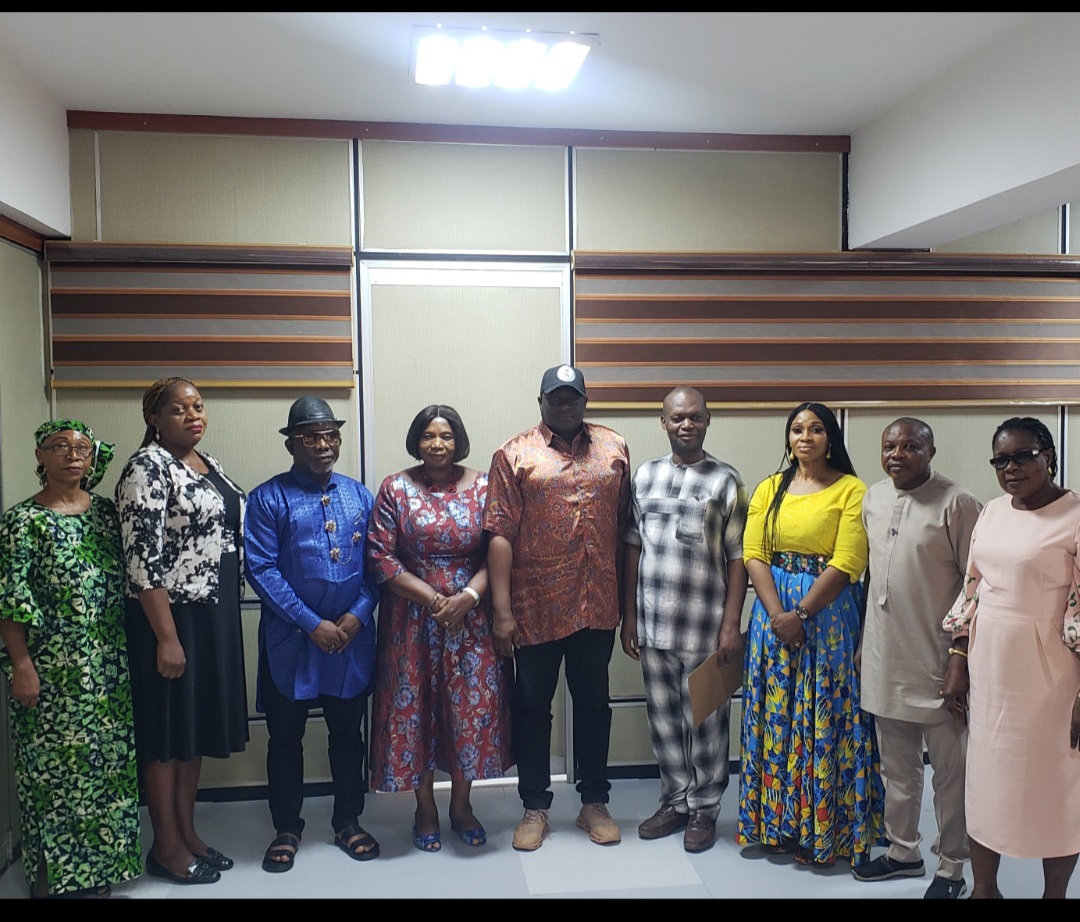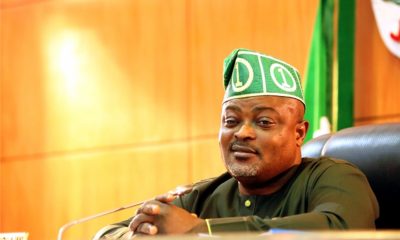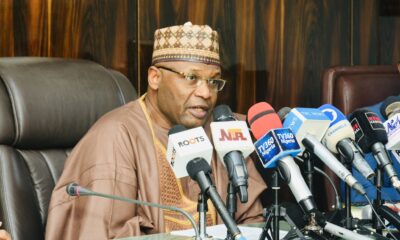Niger Delta
MOSIEND Urges N’Delta Stakeholders, Youths To Support Akpabio
The Movement for the Survival of Izon Ethnic Nationality in the Niger Delta (MOSIEND) has appealed to stakeholders and youths in the region to support the Senate President, Godswill Akpabio, to enable him move the region forward.
MOSIEND said the call for support of the Senate President became imperative in view of the marginalisation the Niger Delta region has suffered in terms of socio-economic development.
The National President of the movement, Comrade Kennedy Tonjo West, made the call while speaking to newsmen on the sidelines of a town hall meeting held with Niger Delta youths and stakeholders in Yenagoa, Bayelsa State on Saturday night.
He said, “Irrespective of political affiliation, it is time for the people to rally round Senator Godswill Akpabio and play politics that will bring about regional development and community empowerment.
“No doubt, as people from the Niger Delta, they will not be shy to let him (Akpabio) know that the region did not get the best from his usual uncommon disposition as a minister; compared with his administration as Governor of Akwa-Ibom State whose achievements still speak volume of him”.
West, however, expressed optimism that Akpabio would do well in his new office as Senate President and use his position to facilitate socio-economic prosperity and development in the region.
“Being the number three citizen of the Federal Republic of Nigeria comes with a lot of goodwill which can only be achieved if the people are mature and wise enough to work together with Akpabio and attract meaningful development to the region during the tenure of President Bola Ahmed Tinubu”, he said.
According to him, “Senator Akpabio possesses the credentials and charisma to man that office, and we are expecting high level of cooperation amongst our National Assembly members irrespective of political divide in order to maximize the opportunities that this government will bring to the table in terms of policies and reforms that are germane to our growth.
“We should not play party politics, but politics that will bring about regional development.
“We are expecting our senators in the red chamber to continually watch the back of the Senate President, advise and galvanize support from senators from other regions to throw their weight behind the Senate President.
“We are confident that he will use his office to attract development to the region.
“We will benefit more from working with him because he has friends across the divides; the Niger Delta and Nigeria at large will benefit because Akpabio is someone who likes unity, someone who doesn’t bear grudges.
“All ethnic nationalities should rally round him because there are good things to come. For us as MOSIEND, we have already accepted him as the political leader of the Niger Delta region.
“We also admonish him to open his doors for concerns from the people of the region.
“Every ethnic nationality in the region should be treated equally, and with him, President Tinubu government is going to get more of our support.
“As a region, we should try and tolerate one another, forgive one another, and the issue of pull-him-down syndrome which the people of the region are known for should be done away with.
“It shouldn’t come up in this equation because the man, Tinubu, is a serious minded person, and we believe that if we join hands with the Senate President, we will get the best from his government”.
MOSIEND promised to come up with programmes that would further deepen unity in the Niger Delta.
“In the days ahead, we are going to fashion out programmes that will further deepen the unity of the people of the region so that we can work together and benefit from the current administration.
“The governors of the region, senators, House of Reps members and all federal political appointees should give Akpabio the support he needs instead of running him down,” West added.
By: Chinedu Wosu
Niger Delta
Welfare Ministry Reviews 2024 Milestones … Prioritizes Remodeling Children’s, Elderly Homes

Niger Delta
MOSIEND Hails RSG Over Asari’s Chieftaincy Recognition

Niger Delta
Yenagoa Becoming Modern City Under Our Stewardship – Diri
-

 Business17 hours ago
Business17 hours agoMarketers, Oil Companies Partner to Build New Refinery
-
Nation15 hours ago
Police Arrest Fake Soldiers, Impound 296 Vehicles In FCT
-

 Niger Delta18 hours ago
Niger Delta18 hours agoJulius Berger Reiterates Commitment To Bodo-Bonny Road Project
-

 Politics17 hours ago
Politics17 hours agoObasa Impeachment: Lagos Assembly Gets First Female Speaker
-
Rivers18 hours ago
Kirike Chiefs Endorse Ogube’s Leadership … As Chairman Sues For Unity
-
News15 hours ago
Tinubu Distributes Palliatives To SUG Presidents
-

 Business17 hours ago
Business17 hours ago‘Navy Stern In Fight Against Oil Theft’
-

 Politics15 hours ago
Politics15 hours agoFire Razes INEC Office In Delta, Destroys 706 Ballot Boxes, Others

